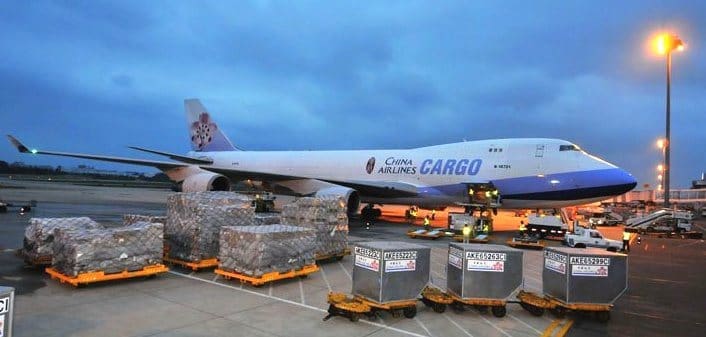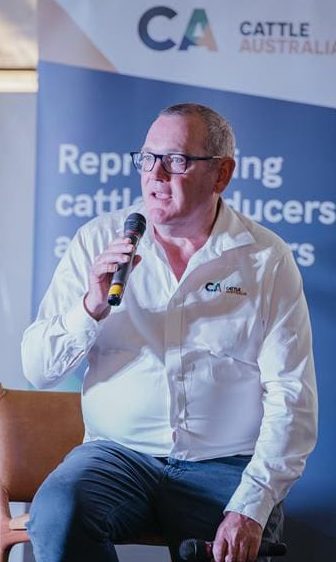IN a big win for Australian agriculture, the Federal Government has today fully withdrawn its legislation for a proposed Biosecurity Protection Levy.
First proposed by former Ag minister Murray Watt in 2023, the levy sought to raise about $50 million annually from a levy on Australian primary producers (see background below).
 The proposal attracted strident and universal opposition from farmers and graziers, who branded it deeply flawed and unfair. Fundamental to their opposition was the view that it was unfair to burden clean-and-green Australian primary producers themselves with costs surrounding guarding against biosecurity risks in products being imported from overseas.
The proposal attracted strident and universal opposition from farmers and graziers, who branded it deeply flawed and unfair. Fundamental to their opposition was the view that it was unfair to burden clean-and-green Australian primary producers themselves with costs surrounding guarding against biosecurity risks in products being imported from overseas.
The proposed levy was to be separate from existing industry-led agricultural levies supporting R&D, marketing, residue testing, and Animal Health Australia and Plant Health Australia membership levies.
The National Farmers Federation said primary producers across the nation were celebrating the Federal Parliament’s decision to discharge the Biosecurity Protection Levy, effectively binning the tax.
President David Jochinke welcomed the decision and thanked the Minister for Agriculture, Julie Collins, for listening to farmers’ concerns.
“This is a huge win for farmers. The Minister and the Senate have listened – this tax was deeply flawed and unfair to farmers. We appreciate the Minister’s ongoing commitment to ensuring the sustainability of our biosecurity system,” Mr Jochinke said.
“I also tip my hat to our members, industry stakeholders and the thousands of farmers who voiced their concerns about this tax. Together we put up a fierce fight and we are relieved to close the book on this bad idea.”
The agricultural sector was united in its opposition to this tax and was just as united in its commitment to protecting Australia’s biosecurity, Mr Jochinke said.
“Farmers already contribute significantly to the system, and we look forward to working with the Government on policy that strengthens our defence against pests and diseases without adding extra costs on our sector.”
“Ill-conceived” – Cattle Australia
Cattle Australia chief executive officer Chris Parker congratulated ag minister Julie Collins on binning the ill-conceived law.

Chris Parker CA
“Finally, the Government has recognised its proposed levy system would have resulted in inequitable imposts on farm industries through a clunky collection mechanism that lacked transparency,” Dr Parker said.
“The Australian beef industry exports more than 70 percent of its production and this is contingent on our disease-free status, so biosecurity is of paramount importance to grassfed beef producers.
“CA fully supports increased Government investment in biosecurity and with the Federal election due in coming months, we encourage both parties to release their policies for a workable and sustainable funding model that provides biosecurity agencies with the resources they need to protect our industries.”
Dr Parker said CA had actively participated in the campaign for the Biosecurity Protection Levy to be overhauled or dumped completely, since its was proposed two years ago.
“Today marks a significant win for grassfed cattle producers across Australia and demonstrates the importance of having a united voice advocating in their interests on issues of national importance,” he said.
Labor’s bad fresh food tax
Nationals leader David Littleproud said farmers and consumers had secured a huge cost-of-living win, after Labor was forced to bin its ‘bad fresh food’ tax.
Mr Littleproud said the Coalition’s successful motion in the Senate to remove the biosecurity protection levy, has allowed common sense to prevail.
“Labor’s fresh food tax would have hurt families at the checkout as well as 84 agricultural commodities, which faced taxes to raise $150 million over three years, to pay for the risks created by their competitors – which is those importing from overseas,” Mr Littleproud said.
“Labor’s senseless and terrible tax idea will thankfully never see the light of day, after an enormous campaign by the Nationals in conjunction with industry and farmers to stop its reckless fresh food tax. The Coalition is proud to have saved families and farmers from this bad fresh food tax, which would have increased food prices even further and hurt our farmers even more.”
“In what parallel universe would a government charge its own farmers to pay for the biosecurity risks their offshore competitors are creating?
“It was senseless when better alternatives were offered by The Nationals, such as an importer container levy, which would charge importers – not our own farmers – to pay for biosecurity risks being created as produce comes into the country.
“However, Labor and the Greens haven’t ruled out taxing Australian agriculture and farmers in the future – the Coalition calls on them to do so, immediately.”
Senator Bridget McKenzie moved the motion and said the Nationals had delivered an embarrassing defeat to the Government on the floor of the Senate, removing a tax Labor should never have proposed.
“Not only would this tax have driven up the price of fresh food, with farmers forced to pass on costs, it would have also undermined the entire levy system, causing chaos and confusion across industry,” Sen McKenzie said.
“Families need food that is more affordable and our farmers need support to get food from paddock to plate. While Labor tried to introduce the exact opposite, The Nationals will always fight for common sense, for fairness, and affordable food and fibre.”
Background
When former federal ag minister Murray Watt proposed the new levy in 2023, there was strong and universal push-back from agriculture during a consultation period. The levy was originally due to be activated from 1 July last year.
At the time, the government justified the proposal by saying everyone had a role to play in strengthening Australia’s biosecurity system, including contributing to the cost of managing the program.
The Australian Government’s 2023-24 Budget announced a biosecurity sustainable funding package of $1.03 billion over four years and $267 million per year ongoing from 2027-28, it said at the time that submissions were called for over the levy.
“This package introduces a new model for funding biosecurity based on shared responsibility – between those who create risk and those who receive significant benefits from the Australian Government’s efforts at the border. The new model recognises that primary producers, whether growing for the domestic market or exporting into premium overseas markets, benefit considerably from Australia’s biosecurity status,” the government said.
“The Biosecurity Protection Levy will be introduced to contribute to the cost of Australia’s biosecurity activities,” the government said. “This levy will see producers join taxpayers and risk creators, such as importers, in delivering a fairer system of funding for the biosecurity system. The cost will be shared between taxpayers, importers, international travellers and producers.”
The government anticipated that from 2024-25, 44pc of the biosecurity system cost would be covered by ongoing taxpayer funding, importers would paying 48, producers (domestic agricultural, fisheries and forestry producers) 6pc, and Australia Post 2pc.
The producer component of the levy was intended to collect around $50 million per year, equivalent to 6pc (on an annual basis) of the Government’s total biosecurity funding in 2024-25.
